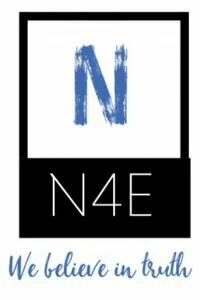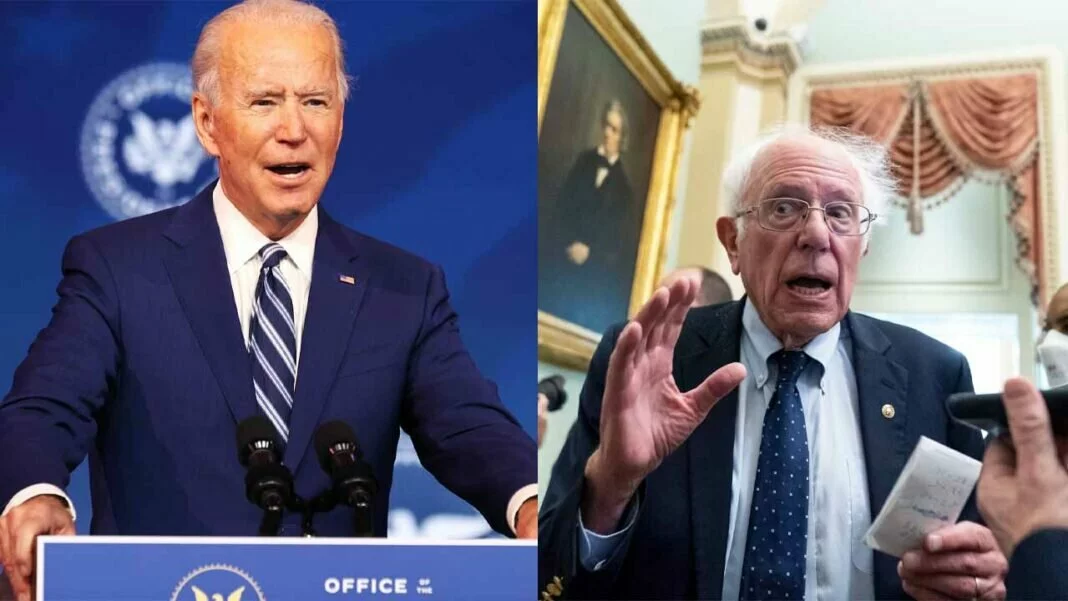Sen. Bernie Sanders on Sunday demanded that Congress act urgently to make sure the widespread distribution of N95 masks to U.S. households because the extremely contagious Omicron variant continues to tear by the nation, overwhelming already-strained hospitals nationwide.
“As we face the rapidly spreading Omicron variant, we should remember that not all face masks are created equal,” Sanders (I-Vt.), chair of the Senate Budget Committee, wrote on Twitter. “Congress must demand the mass production and distribution of N-95 masks, the most effective way to stop the spread of the Covid virus.”
Sanders’ name comes as consultants are vocally emphasizing the significance of high-quality masks in stemming the transmission of Omicron, which was first detected in southern Africa final month and has since change into the dominant variant within the U.S. and different nations.
The Centers for Disease Control and Prevention estimates that Omicron now accounts for practically 75% of latest Covid-19 circumstances within the U.S., which has recorded essentially the most coronavirus deaths on this planet. Dr. Anthony Fauci, President Joe Biden’s chief medical adviser, warned Sunday that Omicron circumstances “likely will go much higher” within the coming days.
“Even though we’re pleased by the evidence from multiple countries that it looks like there is a lesser degree of severity, we’ve got to be careful that we don’t get complacent about that,” Fauci mentioned in an look on ABC. “It might still lead to a lot of hospitalization in the United States.”
With Omicron infections spiking, public well being consultants have confused that medical-grade N95 masks are simply preferable to fabric masks, which—based on University of Oxford professor Trish Greenhalgh—are sometimes mere “fashion accessories” that do not present sufficient safety.
Linsey Marr, a virus researcher at Virginia Tech, equally argued in an interview with NPR final week that “cloth masks are not going to cut it with Omicron.”
“I have a lot of confidence in the vaccines, if you’re boosted, in protecting against severe outcomes, and I have a lot of confidence in an N95 and similar types of respirators,” Marr mentioned. “And I think that with those two things, you can still go about a lot of your normal activities.”
Last week, after initially mocking the concept, the Biden administration introduced a plan to distribute 500 million fast at-home coronavirus exams to U.S. households that request them. But the federal authorities has but to pursue the same technique with masks regardless of months of pleas from healthcare employees, consultants, and lawmakers.
“Ideally, a set of masks would be mailed to each U.S. household every month—the costs of doing so pale in comparison to the pandemic’s toll on lives and the economy,” physicians Abraar Karan and Ranu Dhillon and affected person advocate Devabhaktuni Srikrishna wrote in a January op-ed for STAT.
“The use of such masks would, in combination with other risk-reduction strategies, create safer workspaces for essential workers,” the trio argued.
In July of 2020, Sanders launched laws that might have required the federal authorities to fabricate and ship high-quality masks to each particular person within the nation. The invoice garnered dozens of co-sponsors within the House and Senate—in addition to the endorsements of a variety of advocacy organizations—however has not superior in both chamber.
While the U.S. is not dealing with the sorts of extreme N95 shortages that hampered the nation’s early response to the pandemic, high quality face-coverings can nonetheless be troublesome to search out as a result of proliferation of counterfeits on Amazon and different e-commerce websites. Nonprofit teams similar to Project N95 have tried to assist individuals navigate the morass of fakes and find genuinely high-quality masks.
In current days, public well being consultants have criticized the CDC for explicitly recommending towards N95 masks for most of the people in its formal steerage, which argues that such masks “should be prioritized for healthcare personnel.”
Dr. Leana Wen, an emergency doctor and visiting professor of well being coverage and administration on the George Washington University Milken Institute School of Public Health, informed CNN final week that it has “been many months since supply of N95s [has been] an issue.”
“If we’re going to go as far as to say that masks are required—when we don’t come from a mask-wearing culture and people don’t like wearing masks—at least recommend that they wear the most effective mask,” mentioned Wen.



















